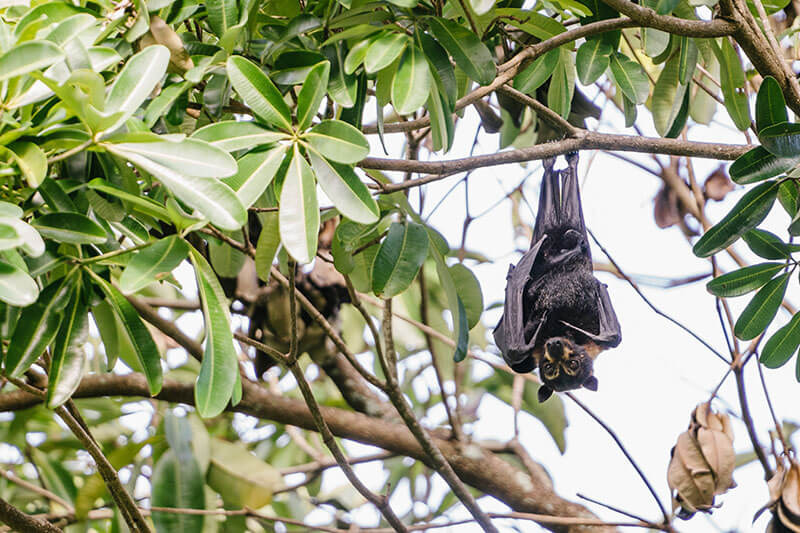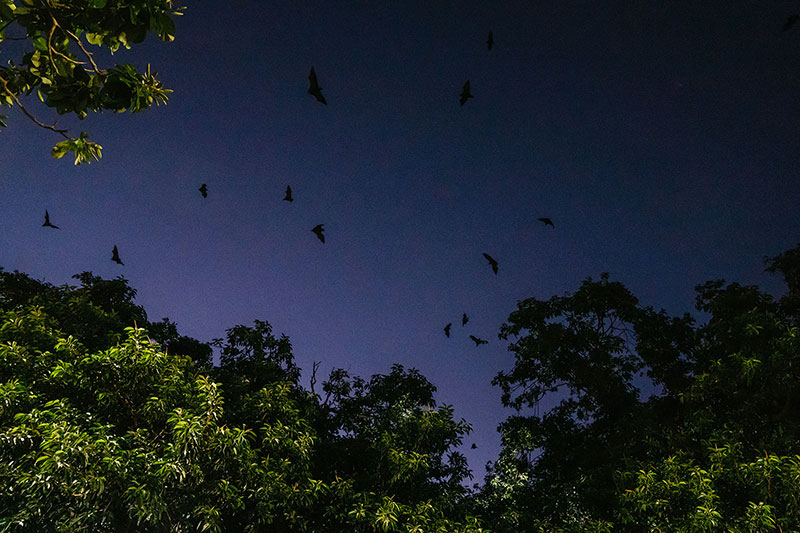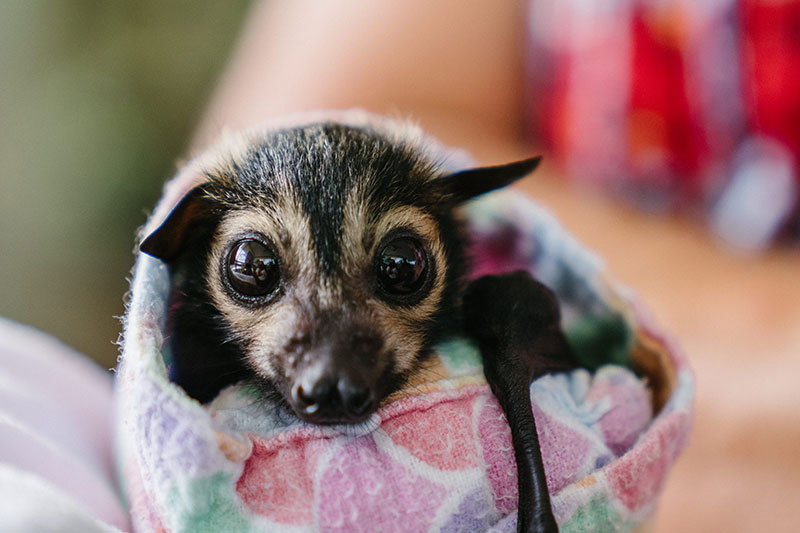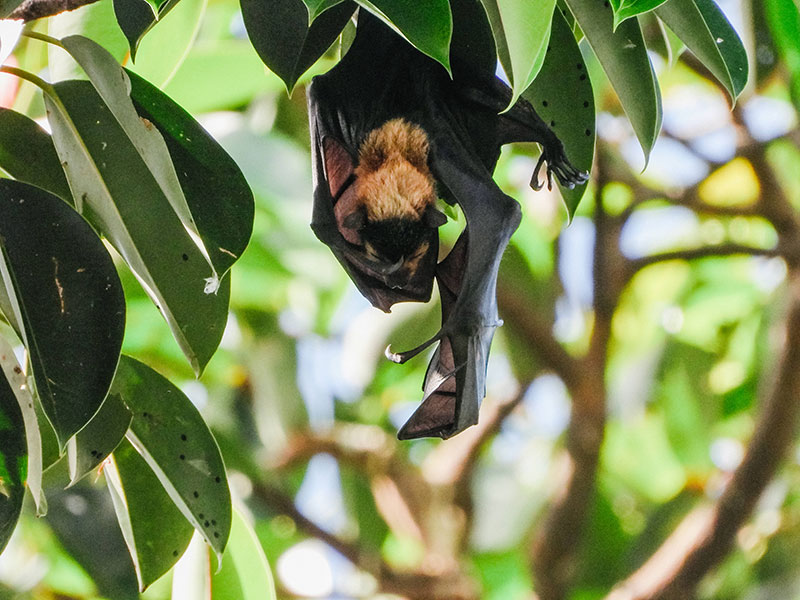The Issues
Flying foxes, also known as Fruit Bats, are among the largest bats in the world. Sadly, they are unfairly demonised and misunderstood, facing challenges and hazards on many fronts – mostly related to human activity. Flying foxes are critical in ensuring the survival of our forests and the overall health of our ecosystem. They are keystone pollinators of the Australian bush, pollinating flowers of over 50 native trees. These gentle and highly intelligent creatures are most deserving of our protection.
Problems facing flying foxes in Queensland

Shootings
In 2008 the state Labor Government accepted the advice of its Animal Welfare Advisory Committee that shooting flying foxes was inhumane because of the small probability that they would killed instantly, given their small head size. However, in 2012 the Newman LNP Government reversed these laws and introduced new laws sanctioning the killing of flying foxes through flying fox damage mitigation permits for crop protection.
Permit holders - usually fruit growers - are permitted to shoot flying foxes, despite the known high rate of wounding and prolonged suffering. There is also the added uncontrollable risk of orphaned flying foxes slowly perishing from starvation if the mother is culled. Up to 1,630 flying foxes can now be legally shot each year. It is likely though that larger-scale illegal shooting occurs.
Dispersals (forced relocations)
Dispersing a colony of flying foxes greatly stresses the bats, is frequently unsuccessful and often the bats relocate to places where they are more difficult to manage.
Despite this, more councils are electing to try the dispersal option for local bat colonies instead of educating their local communities about the importance of flying foxes and the minimal threat to human health.
If people do not handle bats they will not catch Australian Bat Lyssavirus, a very rare disease spread by bites or scratches from an infected bat. The other disease associated with bats, Hendra virus, cannot be passed directly from bat to humans. It is spread from bat to horse to human and there is now a vaccine for horses. Anti-bat hysteria is not warranted in the slightest in terms of them posing a threat to our health.
While less than 0.1% of the bat population carries the Lyssavirus, they are more at risk when sick. The added stress of dispersals will only increase the strain on their immune systems, and potentially increase the number of animals carrying it. Ironically the fear of disease that is prompting these dispersals is actually exacerbating the chance of higher incidence of the disease. Local communities should be given strategies for living successfully with flying foxes


Caught in backyard fruit tree netting
Unfortunately, there is a lot of cheap tree netting available that puts our wildlife at risk. Bats, as well as birds & snakes, can become entangled in nets while trying to reach fruit, causing circulation cutoff, bruising, breaking of bones and wounds caused by skin abrasions. Often these injuries are so severe that the animal needs to be euthanased, and mothers will often abort their foetuses under such stress.
I don’t want to hurt the bats, but I would like some fruit left for myself. What other options do I have?
- Use 30 – 50% shade cloth instead
- Fruit bags over individual pieces of fruit also works
- When in doubt – use the “finger test” – if you can pass your finger through the holes in the netting, it is hazardous to wildlife
Bats face so many problems! How can I help?
- Provide an alternative voice to any anti-bat sentiments expressed in the media. Protest against inaccurate but common descriptions of bats as ‘pests’. Point out that ‘health concerns’ are easily managed if bats are not handled.
- Show your support by joining groups such as Bat Conservation & Rescue (www.bats.org.au) – your membership funds important work educating the public and adding pressure to the politicians.
- Get vaccinated and become a carer of these beautiful creatures – it only requires three injections, blood tests every year or two, and of course, training. See www.bats.org.au for more information.

